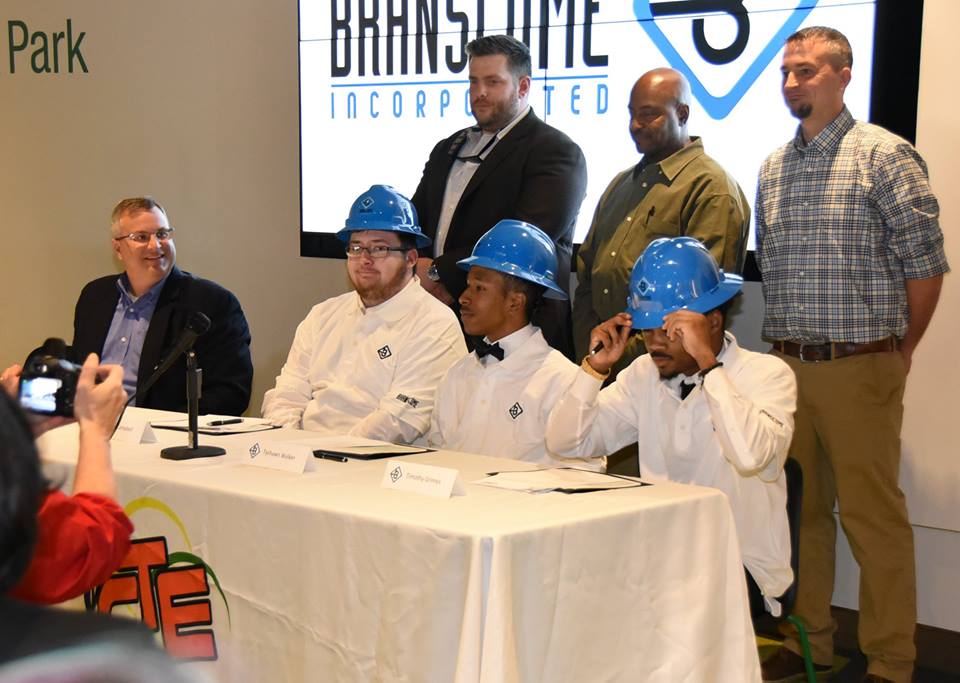Fueled by a mix of misguided cultural pressures and misaligned government incentives, much of our educational system has become geared toward “college readiness,” promoting a narrow, one-size-fits-all vision for vocational and educational destiny. As a result, we continue to see a widening skills gap in the economy at large, as well as a shrinking cultural imagination for what constitutes a “good job” or a “meaningful career.”
Despite these growing problems, politicians seem increasingly set on cementing the status quo, whether by granting increased subsidies for student loans or making lavish promises of “free college” for all. Fortunately, schools at the local level are beginning to respond differently, aiming to empower their students with a truly diverse vocational vision while also changing the hearts and minds of those who continue to prefer the cultural consensus.
In Virginia’s Henrico County Public Schools, for example, school officials recently kicked off an annual “signing day” tradition to celebrate students who will graduate high school with a job offer already in hand. Although the concept is typically applied to high-school athletes upon making their college commitments, Henrico County hopes the celebration helps expand their community’s perspective about work, education, and vocation.
As NBC’s TODAY reports:
For their first signing day, Henrico County recognized 12 seniors as they signed letters of intent to work as machinists or apprentices with local and national companies such as Rolls-Royce in their aeronautical division, paving and construction firm Branscome Incorporated, Tolley Electric Corporation, and Howell’s Heating & Air.
…Over 5,000 students earn industry-based certifications in Henrico County each year, and those certifications represent training that could mean immediate employment for students following their high school graduation.
According to Mac Beaton, director of Henrico County Public Schools’ Certified and Technical Education program—which helps place the students—parents represent a constant hurdle to their children seeing the full range of vocational possibilities. “We’re always trying to figure out how to address the skills gap when the general mentality of parents is ‘I want my child to go to college,'” he said in an interview with TODAY. “…One way to do this is to help them see the value of career and technical education. When you start talking data that affects parents’ pocketbooks, that gets their attention.”
As Beaton explains, many of these students will have stable starting salaries with benefits—not to mention an absence of college debt. “How many parents can say, ‘My child has full health insurance, two weeks of paid vacation, and will be making $40,000 a year’ when they are graduating from high school?” he asks.
Ultimately, though, the most powerful aspects of such a trajectory have little to do with money or job stability—to focus only on that would be to give way to the same errors we see with the existing “college readiness” cookie cutter.
More importantly, such an approach helps students think bigger and more critically about their vocational prospects and what they are actually called and gifted to do with their lives. It equips young people with skills and pushes them to apply those skills toward actual human needs—connecting their calling not with self-indulgence but with service to others and thus to God. It reminds us that our vocational destiny is meant to be discovered a bit more mysteriously than we might thing—i.e., by being prodded along our culture’s “college readiness” assembly line.
As we guide young people in understanding what vocational clarity actually looks like, these students and their school offer a powerful example of how we might broaden our perspectives and our celebrations.
We have plenty to do to fix our educational predicament and expand our economic imaginations, whether through policy, educational entrepreneurship, or a deeper social and spiritual shift in our attitudes and expectations when it comes to work, education, and vocation. But celebrating ordinary work as a gift to a young person is a good place to start.


